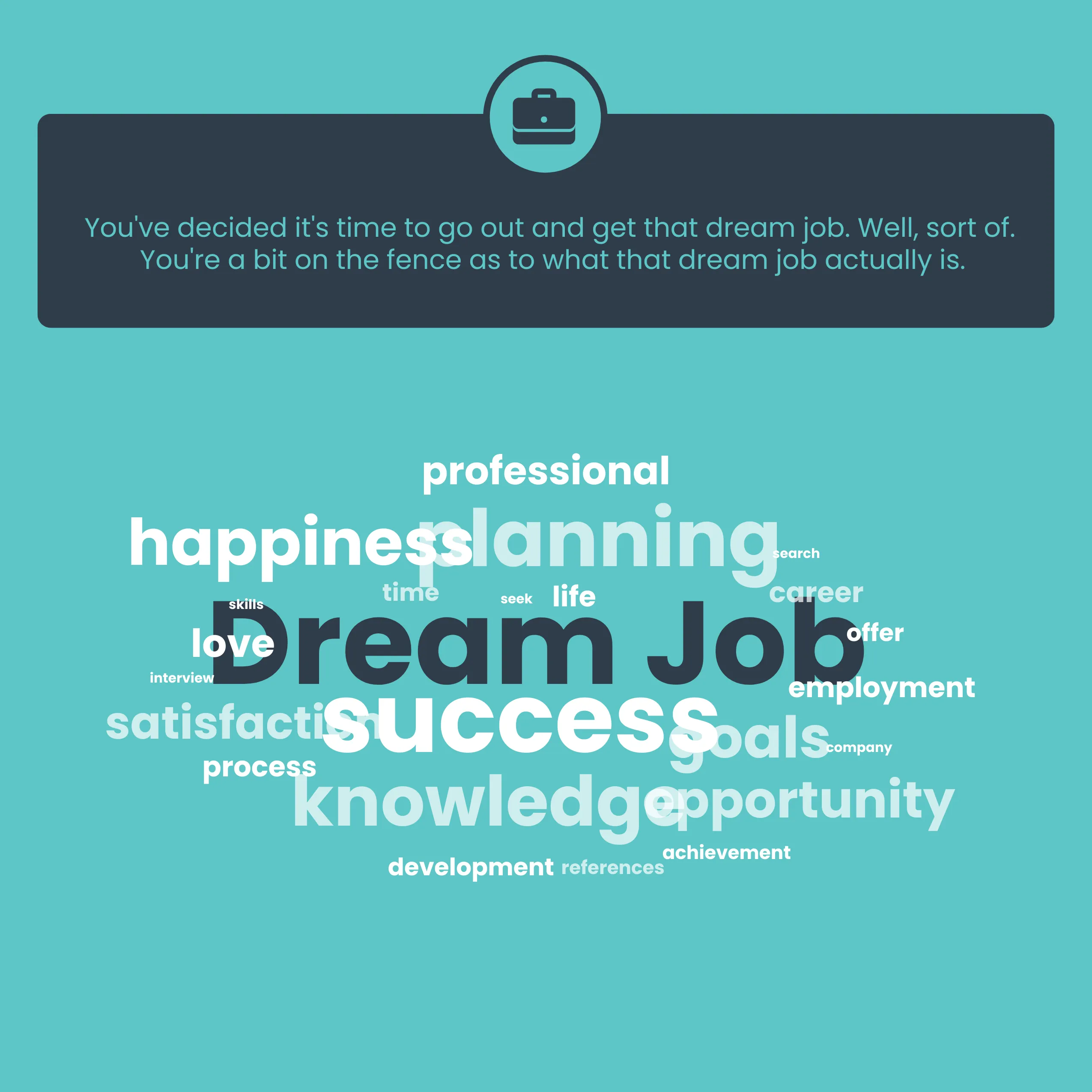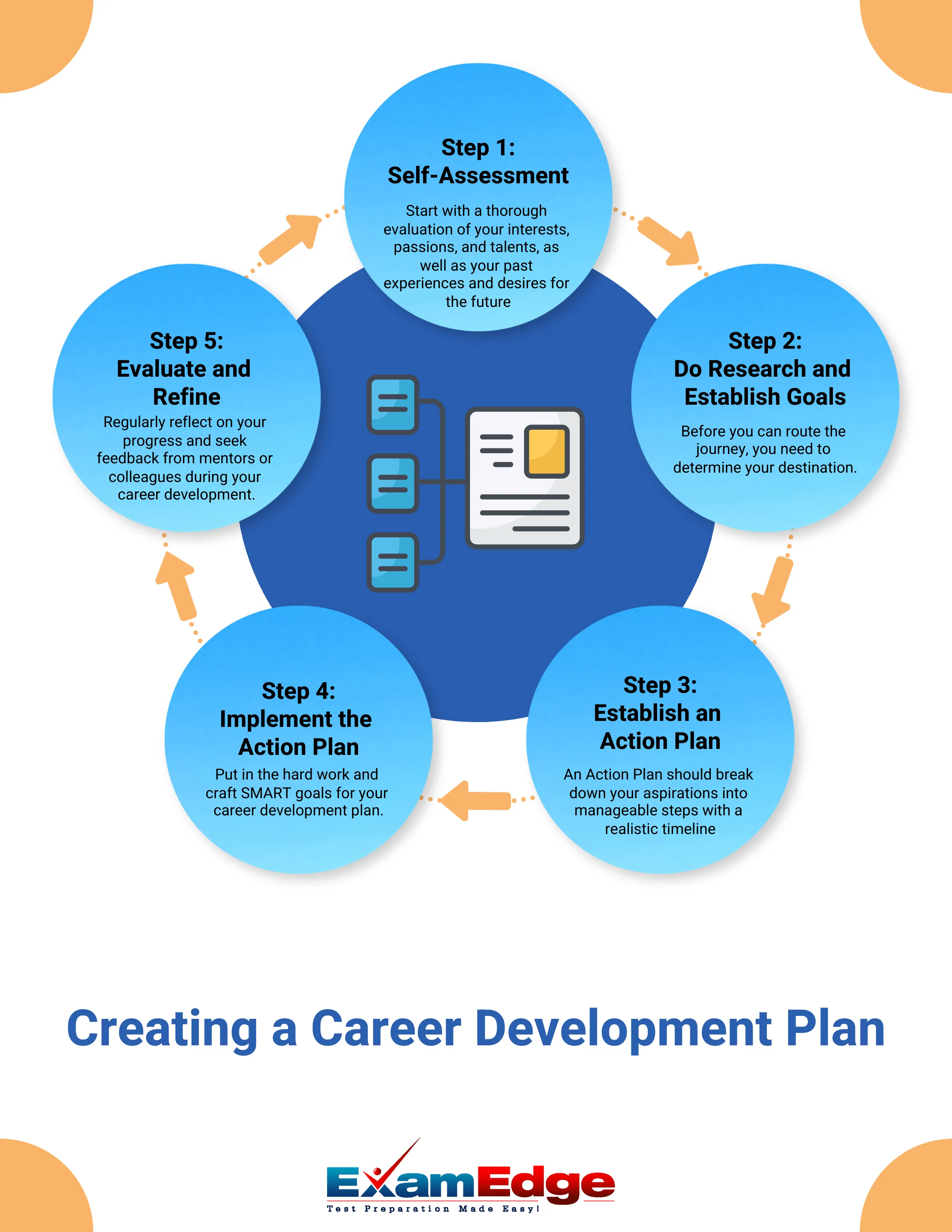
The average American changes jobs 12 times in their lifetime. Does the energy of the new year have you looking for a career change? Read on to learn about career development and how it can level up your 2024.
What is Career Development?
Career development is the ongoing process of refining your professional path. Whether you are starting a new career or seeking to advance in your current field, career development can set you up for success.
Types of Career Development
Career development activities can be divided into two categories:
- Formal career development: Organized activities in structured settings, often with time or financial commitments. These include:
- Classes
- Certificate programs
- Certification exams
- Informal career development: Unstructured, self-directed actions with flexible commitments. These include:
- Self-learning
- Networking
- Involvement in professional organizations
A robust career development plan involves both formal and informal activities. Be sure to incorporate a balance of both into your career prep timeline!
What Influences Career Development?
Your unique circumstances will create different pressures and influences on your career development trajectory. As you explore a professional pivot, consider these factors:
- Age & career stage: Are you an early-, mid-, or late-career professional? How much time and energy do you want to dedicate to your career change?
- Personality: Do you want autonomy and flexibility or structure and direction from your career development activities?
- Financial situation: What financial resources can you put towards your career development?

Why is Career Development Important?
Career development can help make your professional path more personally fulfilling and financially successful. Recent research shows that workers who engage in career development are 15% more engaged at work and have 34% higher job retention than those who do not. Building skills and earning advanced credentials can help you become a candidate for more senior roles with higher pay.
Creating a Career Development Plan
A career development plan can help you define your professional goals and break them down into concrete, manageable steps. If your New Year’s Resolution is developing a career in a new field, start by crafting a strategic plan.
Here are some concrete steps you can take to get your career development plan off the ground:

Step 1: Conduct a Self-Assessment
Start with a thorough evaluation of your interests, passions, and talents, as well as your past experiences and desires for the future. Where do these areas intersect? If you are having difficulties coming up with an idea that you like, you can try a career interest test online.
Step 2: Do Research and Establish Goals
Before you can route the journey, you need to determine your destination. Ask yourself:
- What is my goal?
- What skills do I currently have?
- What skills will I need in my new career?
Research the ways you can acquire the skills and knowledge to fill those gaps, such as:
- Internships: Many organizations offer internships for mid-career professionals looking for a new career, those returning to the workforce and need help starting a new career, or people who are transitioning from the military into a new career in the private sector.
- Volunteering: Consider offering your time and talents to a local non-profit. You could create new projects for your portfolio, practice new skills, and establish new connections.
- Self-learning: Find books, podcasts, or online courses that can close your skills gaps.
- Mentorship: Seek guidance from someone who already works in your desired field.
Step 3: Establish an Action Plan
An Action Plan should break down your aspirations into manageable steps with a realistic timeline. Your steps might include:
- Taking a course or workshop
- Starting a training or certificate program
- Landing an internship or part-time gig
- Registering for a certification exam (such as the AANP for nurses, the CDA for early childhood workers, or the SHRM for Human Resources professionals)
- Studying for a certification exam
Step 4: Implement the Action Plan
Now, you will put in the hard work to bring your career development plan to life! Make sure to craft SMART goals: actions that are specific, measurable, achievable, relevant, and time-bound. Consider using goal-tracking or project-management apps to keep your plan organized and easily accessible.
To stay motivated and prevent burnout:
- Reward yourself for achieving smaller milestones.
- Make time for rest to stay healthy and energized.
- Revisit your end goal to remind yourself of the big picture.
Step 5: Evaluate and Refine
Just like how a road trip can involve pitstops and detours, your career development roadmap should allow for flexibility. Regularly make time to reflect on your progress and seek feedback from mentors or trusted colleagues. Then, revise your Action Plan accordingly. You can always try another career interest test to see if your interests have changed too. Just keep trying!
How Can a Career Certification Help Me?
A certification can help to advance your career by showing employers that you possess skills and knowledge that are important to the profession. These certifications can often be earned more quickly, and at a lower cost, than a degree program.
What is a Career Certification?
A career certification is a credential that shows employers that you have the relevant skills or knowledge you need to perform the job you are applying for. While there are many different kinds of certifications that you can obtain across many different industries, you can generally break them down into two broad categories:
- A credential from a professional organization. This kind of career certification recognizes your skills or qualifications in a particular field. These credentials are usually earned through some type of assessment, such as a certification exam.
- A training or education program that results in such a credential. Career certificate programs are offered by professional organizations, colleges and universities, and other agencies. These programs may involve a series of classes or workshops with assignments and assessments.
Not sure what certifications are available in your field? Use the Certification Finder too provided by the U.S. Department of Labor to explore the credentials relevant to your industry and research the best certification for a career change.
Career Development FAQs
How Can I Find a Career That’s Right for Me?
Finding a new career starts with a thorough assessment of your values, skills, and your ideal work-life scenario. You need to understand what you want out of a job and what you bring to the table to determine what sorts of jobs will suit you. Taking a career interest test can be very helpful in this regard! Then, you can narrow down a list of career paths that might be the right fit.
Is 30/40/50/60 Too Old to Start a New Career?
No—it is never too late to start a new career, whether you want to try a new career at 30, find a new career at 40, or start a new career at 50 or 60. Changing careers takes reflection, planning, and perseverance—traits you may have even more of as a mature professional. In fact, the average age of a career changer is 39!
Are Career Certifications Worth It?
Yes! Career certifications can help you get established in a new career path, so they are certainly worth the effort and investment. To ensure your efforts go towards a career certification that matches your goals, research:
- Which certification programs and/or exams are available and most relevant to your intended career.
- What agencies or organizations provide certification.
- What kind of test prep is needed for certification exams.
Additional Resources
Whether you are looking for more guidance on how to start a new career as we start a new year, or need some tips on how to stay motivated and start the new year strong with test prep and other career goals, Exam Edge is sure to have the right test prep resources for you to get you started!
Kick Off Your New Career This Year with Practice Certification Exams from Exam Edge!
The fresh start of a new calendar year is the perfect time to begin a career shift. Use Exam Edge practice tests to hit the ground running!

